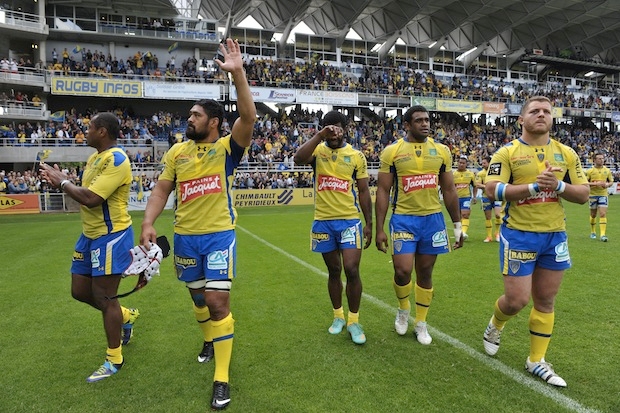Sport is all about streaks, winning and losing, though whether one of the gloomiest runs in world sport — England’s footballing failure to reach the final of a major tournament for nearly half a century — can be brought to an end by Roy’s Boys remains to be seen. It seems unlikely, but how nice for to be going into a tournament with so little expectation and a team full of youth and vigour, playing without fear. Much better to be under the radar than being hyped out of sight. Can’t wait myself.
Certainly one of the most remarkable winning streaks in sport came to an end last weekend — and an even more impressive streak continued into a third decade. Neither got much coverage, but they deserved to. After four-and-a-half years and 77 matches, Clermont Auvergne, the flamboyant French rugby side, were finally beaten at home, punctured in the Stade Michelin by Castres, from the Pyrenees, in the play-off semi-finals.
It was an extraordinary run — several English sides have headed to the Massif Central with confidence, only to be sent home with their tails between their legs — but all good things come to an end. Most of them, anyway. Unless you are a devotee of the tiny type in the sports pages, the Tasmanian real tennis player Rob Fahey may not be familiar, but he deserves applause after retaining the oldest world title in any sport (it was first awarded in 1740) for the 11th time. He first won this biennial tournament in 1994 and still reigns supreme at the age of 46.
Real tennis is a niche sport — there are only about 50 courts worldwide, although they once covered Europe like cinemas do today — but to stay at the top of your game in any field for 20 years is impressive, especially given that the final is played as the best of 13 sets over three days. Real tennis was the sport of Henry VIII and features in Shakespeare’s Henry V, when the French Dauphin sends Henry a gift of tennis balls to mock his claim to the throne. Henry’s response is worth a look (Act 1, scene 2). More recently, Colin Cowdrey was a fine real tennis player who taught the game to Don Bradman. The ball is so hard and the racket so tight that shots resemble a cricket block.
Fahey, something of a silver fox who is dating a woman half his age, has also won 46 grand-slam singles titles, which are played in the same four countries as the lawn tennis majors. Some wondered if he might struggle in the World Championship final this time, though, against Camden Riviere, an American with a name that makes him sound like a North London resort. When Riviere, the US and French Open champion, took the first set 6-0, they feared the end was nigh. But Fahey won seven of the next nine sets.
Where does his 20-year domination sit in the pantheon of great winning streaks? Edwin Moses went unbeaten for a decade over the 400 metre hurdles in the 1970s; Rocky Marciano had 49 straight wins in the ring in the 1950s; the Aussies won 16 Test matches in a row over the turn of the millennium; Lance Armstrong had those seven… actually, best not mention Lance.
Two more great streaks could continue this summer. Rafael Nadal is seeking his fifth consecutive French Open title (and his ninth in all), which would break the record he shares with Björn Borg. The Spaniard has looked wobbly of late, but who would bet against him at Roland Garros? And then there are the All Blacks, who completed an unbeaten year in 2013 with a last-gasp try to beat Ireland. They are on a 14-match streak and could equal the record of 17 held by the Springboks if they sweep England aside this summer.







Comments